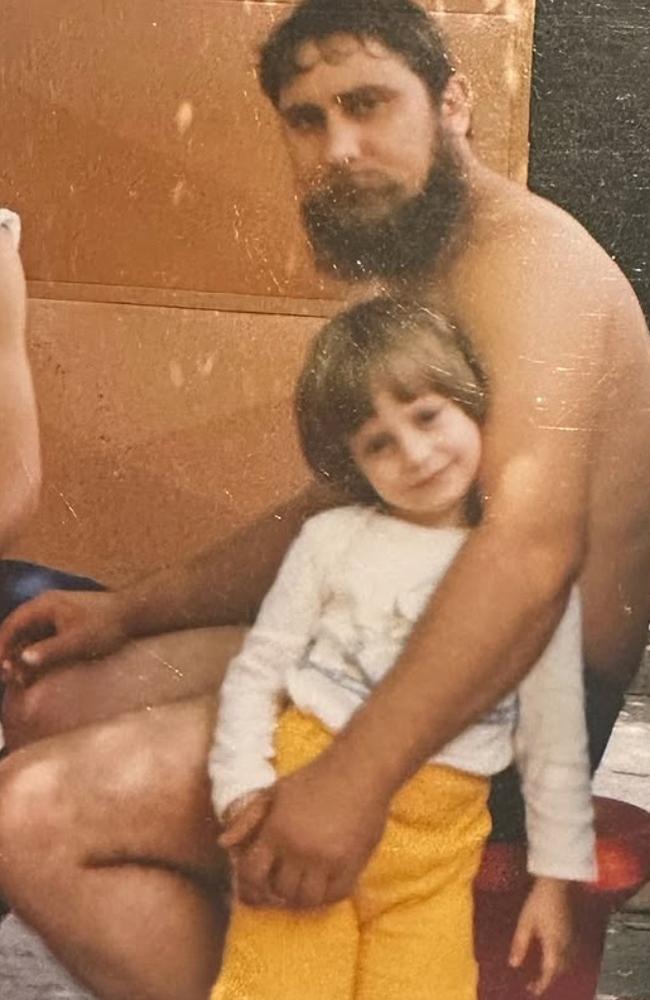The three ways to navigate the death of a parent
For all of us, the death of a parent is a life-changing event that brings with it a flood of emotions – grief, fear, anger, even sometimes relief.

Gold Coast
Don't miss out on the headlines from Gold Coast. Followed categories will be added to My News.
For all of us, the death of a parent is a life-changing event that brings with it a flood of emotions – grief, fear, anger, even sometimes relief.
But when your relationship with that parent is strained or estranged, the grieving process can be even more complex.
Former Aussie tennis champ Jelena Dokic announced last week that her father, Damir Dokic had passed away.

The strained relationship between the pair is well documented – she detailed his physical and emotional abuse of her over many years. In her Instagram post announcing his death, Jelena noted that their relationship had been “difficult and painful” and that she hadn’t spoken to him for many years but was trying to focus on “good memories”.
This is the particular challenge for those grieving a parent who was also their abuser – it’s a complex web of emotions and memories that can be positive as well as negative.
Acknowledging the pain and suffering they have caused can be one important step towards processing the whirlpool of feelings that come with such a loss.
There may be guilt and self-blame for being unable to stop the abuse – it’s important to remember that what you suffered was moral injury, not punishment for being ‘bad’.
Others may find comfort in forgiveness. That doesn’t have to mean forgiving their bad actions, but it can feel freeing to acknowledge other people’s limitations and move forward from the past.

Funerals can often feel particularly challenging – how do you celebrate the life of someone who has been the cause of pain and trauma?
A funeral is a way of ritualising and getting closure. Rituals are a really important part of grief and loss, but attending a funeral might not be right for everyone.
I’ve had plenty of clients and family members in the past who choose not to attend someone’s funeral. Sometimes that’s because it’s someone who has hurt them in the past, other times it’s because they needed to process the loss in their own way and own time.
That can mean coming up with your own rituals and ways of remembering.
It might be writing a letter and throwing it in the ocean or burying it, setting up some balloons or something else that allows you to acknowledge and express your feelings.
This can be an opportunity to find a way to say something you always wanted to say to that person, and to think about how you can come to peace with it for yourself.
There’s a series of steps we go through in processing grief – accepting the reality of the loss, experiencing the pain that comes with it, then adjusting to that new environment without that person.

Compassionately acknowledging that pain, expressing it and nurturing yourself can help to work through it. For those who didn’t receive that nurturing and care from their parent as a child, this step can be especially crucial, as it’s about caring for your own inner child.
Grief is a deeply individual process, and everyone experiences and deals with it differently. Complex and difficult relationships with parents aren’t restricted to celebrities and it’s a challenge many of us face.
Here are some of my top strategies for anyone navigating the death of a loved one. Not every
strategy is right for everyone, and it’s important to remember that whatever works best for you, in your time of grief, is ok.
1. Identify the feeling – sometimes being able to name the different emotions you’re feeling can be really helpful. I often encourage people to look up an ‘emotions wheel’ which shows all the varying emotions that can sit behind ‘grief’ or ‘anger’. The process of identifying and sitting with those emotions can be very helpful for some people.
2. Express your emotions – often in challenging parental relationships we may have suppressed our emotions as a survival or coping mechanism. You may not feel ‘safe’ expressing emotions like anger or rage, so give yourself permission to express your feelings with a friend or a trusted person.
3. Set boundaries – it’s ok to grieve in your own way and in your own time. If attending the funeral, for example, is not right for you, you might choose to find other ways to grieve or celebrate that person.
Dr Cher McGillivray is an Assistant Professor of Psychology at Bond University.
More Coverage
Originally published as The three ways to navigate the death of a parent




